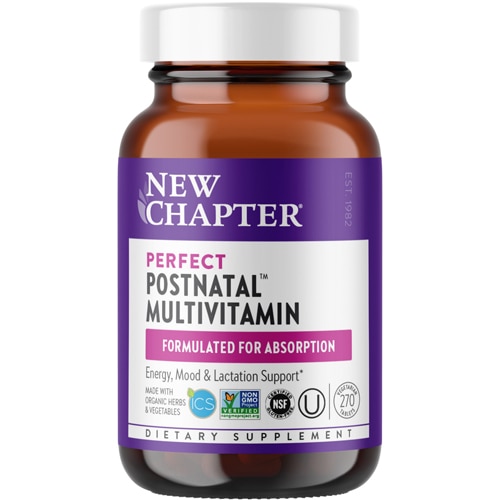Giving birth is at once natural and miraculous, and chances are your first few weeks with your newborn will be devoted entirely to tending to the magic you created. Their searching eyes, their blind love, their gummy smiles (to say nothing of the care they require)—it’s no wonder that the rest of a woman’s world seems to fall away seconds after their child is delivered.
But there’s one person that often gets overlooked in this equation: You, the person who, in effect, built this miniature human, carried it for nine months, and went through the taxing process of childbirth.
And yet, your newborn’s health depends upon your well-being. With this in mind, here are 5 vital ways to care for yourself post pregnancy:
1. Prioritize vaginal and perineal postpartum care
After the birth of your child, your uterine sloughs its lining in what’s often referred to as “the period of all periods.” The vaginal discharge, called lochia, starts off heavy and generally lightens over six weeks—and is a completely natural part of the process. But combined with a vaginal delivery, your area down there can go through some agonizing moments.
To that end, give it, well, a rest. As you likely know, tampons are a no-no (plain maxi-pads will be your best bet). So is doing as much as possible in the spare time you have while your newborn is sleeping—which will not only exhaust you further but also potentially cause you to have heavier bleeding. This is the time to allow others to wait on you—and they will likely be glad to do so.
You’ll also want to nurse your perineum (the area around your vagina), particularly if you had an episiotomy during delivery. (Even without a tear or stitches, this region will likely feel inflamed and painful.) Use an ice pack to ease swelling, relax in an herbal bath (consider it the perfect way to steal a couple of moments to yourself), try DIY postpartum healing pads, spend sitting time on a pillow or padded ring and practice Kegel exercises, which will facilitate blood flow to your perineum and foster healing.
2. Manage afterpains
Outside observers may be under the impression that contractions end the moment your child takes their first breath. While we wish this were true, most women experience postpartum contractions—or “afterpains,” as they have come to be called. As the Mayo Clinic reports, “These contractions—which often resemble menstrual cramps—help prevent excessive bleeding by compressing the blood vessels in the uterus.”
These pains are also a side effect of breastfeeding (due to the release of oxytocin). Use a heating pad to soothe cramps and sip ginger tea—the warming herb is widely known for quieting abdominal pain. And remember, afterpains are a good thing: It means your uterus is shrinking back to its regular dimensions.
3. Support digestion
Bliss, fatigue, exhilaration, irritability—all are commonly felt after childbirth. But did you know that your GI tract may be experiencing just as much chaos? As your body adjusts to no longer carrying a human, your digestion may be all over the place, with the greatest, most common complaint being constipation. (Also be aware that you may develop hemorrhoids from the stress of pregnancy and childbirth.)
To avoid getting blocked up—and to dodge the agony of having to push again—focus on drinking lots of water and eating fiber-rich foods. A few top options include whole grains such as brown rice and oats, legumes and beans, dried apricots, nuts and seeds, and sweet potatoes—which, rich in pro Vitamin A, beta carotene, will naturally support your little one’s vision, immune function, cell specialization, and bone growth. As for those hemorrhoids? Treat the area with witch hazel.
4. Baby your breasts
Having a child typically entails seismic shifts in a woman’s life—including the life of her breasts. Two to five days after your baby is born, you will begin to make milk to feed your child, which often leads to engorgement and a sense of fullness. Consider investing in a supportive bra to take away some of the heaviness and discomfort you may be experiencing. If you’re breastfeeding, you’ll also want to invest in nursing pads—inserts that can be worn inside your bra to absorb “letdown” (read: breast milk leaks).
The act of breastfeeding, meanwhile, can result in dry, cracked, and sore nipples; to remedy this, consider switching sides, consulting with a lactation expert, and practicing nipple care. This includes cleaning your breasts only with water—soaps and body washes can strip the oil your body naturally produces to protect your nipples—using an organic nipple cream with lanolin, and investing in hydrogel pads—they not only encourage healing but also offer immediate relief.
If you’ve chosen to bottle-feed your newborn, wrap your chest in a snug towel or cloth, which, as the University of Rochester Medical Center says will help stop the production of breastmilk.
5. Pay attention to your mental well-being
You may be fed, relatively rested, and supported by your partner and other loved ones—but are you paying mind to your mental state? Roughly 21 percent of new moms will experience minor or major depression—and that’s a low estimate, given that postpartum depression (as well as anxiety and other mental health issues) often goes unreported.
The first step towards healing your mind and nervous system is by recognizing that you may have a complication in the first place. Acute mood swings that persist longer than three weeks, ambivalence towards your child (or downright disliking them), unrelenting worry, and unwanted thoughts are just a few of the symptoms that can wreak havoc on your health (and, potentially, your child’s).
If you suspect that you have something more than just the baby blues going on—or if your partner or family member has noticed a lasting alteration in your behavior or cognition—please be frank with your doctor. You are not alone in this, and a variety of treatments—from psychotherapy to antidepressants—are at your fingertips. (Just be sure your doctor conducts a full physical exam, complete with a blood test, to rule out the possibility of an underactive thyroid.)
And remember: Your body has just accomplished one of the most remarkable feats possible. Treat it with the TLC it deserves and requires.





